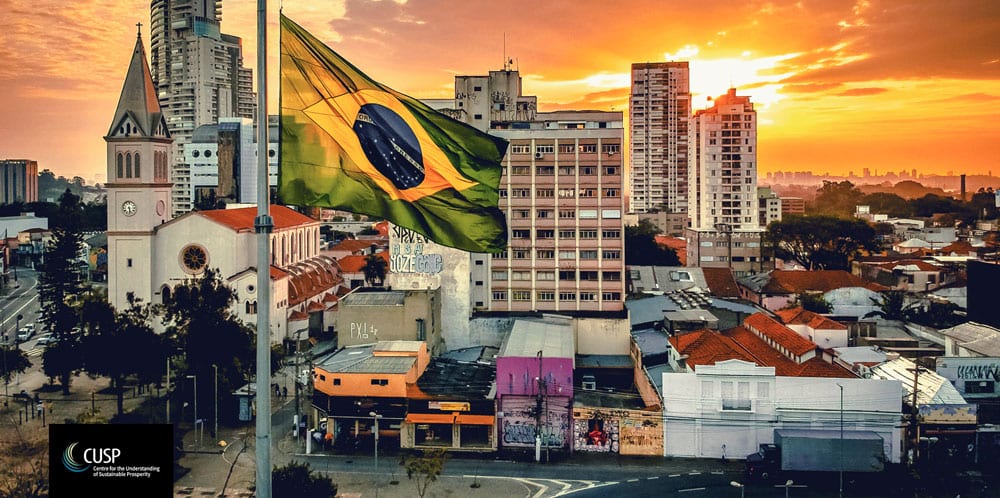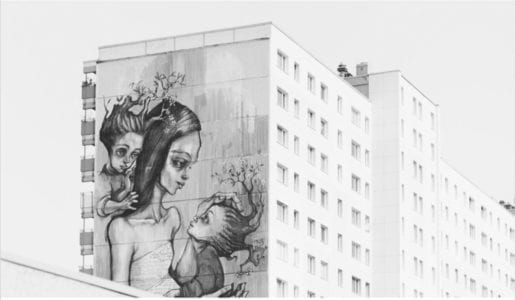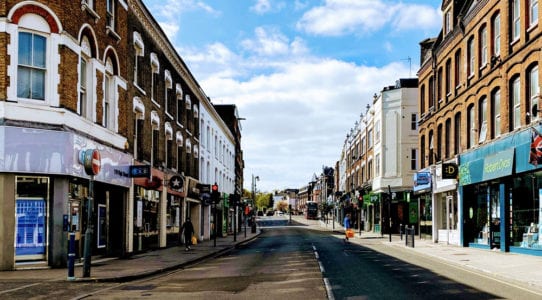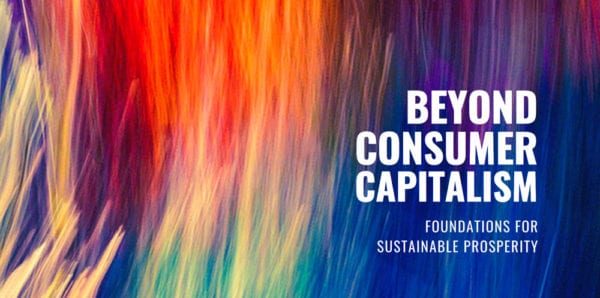Brazil, lifestyles and lockdown: sustainable consumption in a disrupted society
The worldwide Covid-19 pandemic has countless downsides. But, is there perhaps somewhere, somehow, something we can learn in all this? Patrick Elf and Caroline Verfuerth together with Carla Pasa Gómez explore the potential impact of Covid-19 on sustainable consumption prospects in Brazil.

The global middle class is expected to grow and reach 5.5 billion by 2030, adding pressure to our planet’s resources through unsustainable consumption practices. The lion share of the new global consumer class will live in developing countries such as Brazil.
While it is undoubtedly of key importance to end poverty and allow citizens in developing countries to live more prosperous lives, the adoption of unsustainable consumption practices should be avoided if we are serious about staying within the 1.5C as outlined by the IPCC. As a first global attempt to mitigate risks triggered through current consumption levels, the UN Sustainable Development Goals (SDGs) added SDG 12 focusing on sustainable consumption and production (SCP).
To make SCP a reality, a concerted effort is needed that includes both bottom-up (sustainable consumption) and top-down (sustainable production and legislation) approaches.
A report by our CYCLES study research partners, the Instituto Akatu, published at the end of last year, showed that Brazilians are rethinking their lifestyle choices and actively try to include pro-environmental actions and live a healthier and more sustainable lifestyle.
As so often, reasons for changes to our behaviours are diverse. For example, as shown in longitudinal research, an intergenerational transition across Latin America is taking place through increases in income. This is resulting in a transformation of citizens’ values and attitudes. Analysis by Inglehart shows that younger generations (i.e. born between 1987-1996) adopted post-materialist values and, in developing countries like Brazil, currently outnumber older generations that hold more materialistic values. People with post-materialist values usually display higher levels of environmental concern and show greater interest in an active participation of political discourse and wider civic issues, making it more likely that more sustainable consumption practices are adopted and incorporated in existing lifestyles.
At the same time, most people will remember pictures of unprecedented deforestation and the burning of massive patches of the Amazon rainforest turning São Paulo—Brazil’s biggest city—afternoon into a midnight scenario. This generated a mounting pressure by citizens across the world, international governments and investors alike to shift to more sustainable production processes.
These calls for change in SCP gained attention besides Brazil’s current political leadership taking rather opposing stances towards democratic principles, deforestation, and sustainable development overall, with President Bolsonaro previously threatening on various occasions to quit the Paris Climate agreement.
But, as we are all painfully aware, much has changed since the turn of the year. While a few experts previously warned that a pandemic can occur, the global Covid-19 pandemic can certainly be described as a Black Swan event, a term coined by Nassim Nicholas Taleb describing an unpredictable happening that is beyond what is normally expected of a situation and has potentially severe consequences. With Covid-19 rapidly spreading throughout the entire globe, our attention has been painfully shifted to a seemingly more urgent crisis, leaving little space for other issues such as the climate crisis.
While no one knows what life after the pandemic will be like, an event like this could still be a tipping point that accelerates lifestyle changes and consumption patterns. Prior to Covid-19, and despite the right-wing political climate in Brazil, a slow but steady shift towards higher environmental awareness in the public and towards sustainable consumption and production were a glimmer of hope. Indeed, following up from these previous developments in Brazil, we were interested in the impact of Covid-19 on consumption practices of Brazilians during the lockdown[1].
Previous research suggests that posing a significant disruption to everyday lives, habits and routines can be changed through moments of change. This is also known as the habit-discontinuity hypothesis, something a number of CUSP colleagues have previously explored in detail.
In our research we surveyed almost 1000 people across Brazil focusing on societal groups with higher purchasing power within the major urban centres of the country. Our research found that how people buy things considerably changed during the Covid-19 lockdown which also impacted what people were consuming. In our survey, the vast majority indicated that they hoped to reduce their environmental impact and consume less in the future. Especially a reduction of consumption is essential to stay within our planetary boundaries and avoid potentially catastrophic climate change. Indeed, Lorek and Fuchs make a convincing case that only what they call strong sustainable consumption including no consumption will make a difference.
According to our findings, lockdown provided people with an opportunity to reflect on their situation and their consumption practices. Almost half of the respondents stated that they realised they had enough products and services to fulfil their needs during the lockdown situation.
Looking closer at the behaviours during the lockdown showed that the majority of our participants engaged in pro-social behaviours, trying to support local businesses and making donations to NGOs, among others. Anti-social actions were sanctioned. Big corporates dismissing workforce for example were met with vocal resistance, and a nationwide social media campaign—under the hashtag #NÃODEMITA (“don’t fire”). Businesses with a pro-social agenda, that followed international lockdown and social distancing measures—besides inconsistent, sometimes contradicting government guidelines—were consciously supported, our research shows, to reward their societal commitment.
The Covid-19 lockdown, it seems, provided an opening for lifestyle evaluation, brought out pro-social attitudes and, at least for the moment, increased interest in changing consumption practices to be more sustainable.
While we are still writing up our results, following an invitation by the Health Faculty of Pernambuco (FSP) in Brazil, Dr Patrick Elf recently had the opportunity to present some of the interim findings during a webinar. Together with Nayara Mesquita, entrepreneur and founder of Pholha Verde and Luciana Naira, social and environmental activist from Recife Sem Lixo, as well as over 700 attendees, we discussed sustainable consumption practices in Brazil.
Most attendees work in the health sector and are exposed to Covid-19 on a daily basis which presumably can distract from the urgency of other issues such as sustainable development. Yet, they too showed a strong understanding that change of consumption practices is urgently needed. During the Q&A session an interesting discussion evolved around how smaller actions such as the use of bamboo straws can trigger new, additional pro-environmental behaviours and practices, and how the health sector can incorporate more sustainable practices that are often already part of the everyday lives—processes known as behavioural spillover effect and contextual spillover effect respectively.
Developing countries might need a transition phase that will involve what Lorek and Fuchs call weak sustainable consumption, but the transition to strong sustainable consumption practices needs to be rapid.
Covid-19 has exposed much of our worst but also best tendencies. In the case of Brazil it is the pro-social that dominates what the pandemic has shown. Our research indicates that to be successful and eventually make it a reality, sustainable consumption campaigns and strategies might benefit from focusing on messages that are tightly linked to social issues first and foremost. The appetite for a green recovery is there. “Bora?”
__
[1] NB: While lockdown measures were enforced on a state level with different governors taking very diverse strategies and President Bolsonaro pushing hard to keep the economy open, rejecting efforts to minimise health risks, our data collection took place over the time of ten days in April during which all states were in lockdown.






